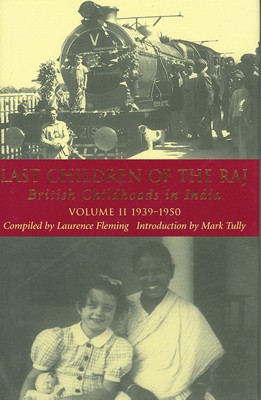Last Children of the Raj(English, Hardcover, unknown)
Quick Overview
Product Price Comparison
What was it like to be a child of the British Raj in India, and to leave an often exciting and exotic Indian childhood in what must have seemed like a golden age, for the duration of a destructive war? And then to return to an India which had changed radically, often tragically, and for the good? What was it really like to be part of expatriate life behind the scenes of Paul Scott's 'Jewel in the Crown'? In 'Last Children of the Raj', Laurence Fleming, like Mark Tully, one of the 'last children', brings together a vivid and delicately-etched collection of individual memories of children born between 1914 and 1940 who spent their childhood and adolescence in British India and the Princely States. Here is a unique entry-point into British and Indian cultural and social history during the last and momentous period of the British Raj - the period of world war, Partition, accompanied by such violent and tragic blood-letting, and the birth of independent India and Pakistan.Here are details of family traditions with deep roots in the Indian sub-continent, of going to school in India and back in Britain, of deep friendships and relationships with British and Indian children and with those who served the Raj. There are accounts of huge journeys and adventures available only in Indian childhoods. Here there is so much to be gleaned about fathers' careers, including the 'Heavenborn' - the Indian Civil Service - or members of the professional and technical services who mapped and developed India, or about fathers in the Indian Army and British army in India, or in commerce and industry. There is an awareness, perhaps beneath the surface, of questions of colour and race. Mark Tully writes movingly in his introduction that although 'our parents lived as a separate race they were Anglo-Indians, in that they were touched by India'. And returning to India, immediately after the Second World War or later, was to 'come home'.


